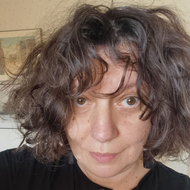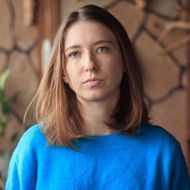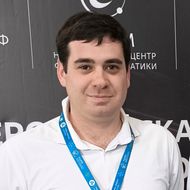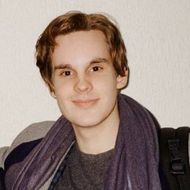Archival Impulse: Dubna Hosts Summer School Organised by HSE University and JINR
The Joint Institute for Nuclear Research (JINR) in Dubna hosted the Archival Impulse Summer School, co-organised by JINR physicists, historians from the HSE Faculty of Humanities, and staff from the Archives of the Russian Academy of Sciences (ARAS). This first archival summer school continued the joint initiative of HSE University and JINR to examine and preserve the unique historical legacy of physicists.
The Joint Institute for Nuclear Research (JINR) is an international intergovernmental research centre established under an agreement signed by 11 founding countries on March 26, 1956, and registered by the United Nations on February 1, 1957. Located in Dubna near Moscow, JINR is a world-renowned scientific centre and a unique example of successfully integrating fundamental theoretical and experimental research with cutting-edge technology development and university education.
Since the mid-20th century, this international intergovernmental institute at Bolshaya Volga has been building giant accelerators, adding new elements to the periodic table, launching experimental reactors, creating powerful computing infrastructures, and probing the depths of matter—all while uniting scientists from around the world. Over the years, almost every desk at the institute has become an archive awaiting its archivists.
This summer, aspiring historians, archivists, cultural scholars, sociologists, philologists, lawyers, architects, urbanists, and physicists from HSE University, the European University at St Petersburg, RSUH, Shaninka, MSU, RANEPA, the University of Tyumen, and other leading Russian universities tried their hand at becoming archivists. Over the course of the week, they took part in roughly fifty events—from lectures on Soviet hydrofuturism and nuclear cities to conversations with aksakals and screenings of archival films. At the heart of the school were hands-on experiments in archiving and bringing vestiges of the institute’s history back to life.
By digitising synchrophasotron journals, cataloguing the correspondence of Academician Frank, identifying and attributing images from the neutron scientists’ photo archive, and decoding and encoding the work records of JINR’s first director, the school’s participants not only assisted physicists and enriched the overall understanding of big science with a human dimension but also expanded the boundaries of the archive.
Importantly, this collaborative open space was provided by the archive of the institute, where international research teams have worked together for nearly 70 years, transcending barriers and borders of every kind.

Galina Orlova, Associate Professor at the School of History, HSE Faculty of Humanities, and Co-Director of the Archival Impulse Summer School
— Our school grew out of archival conversations between 'physicists and lyricists'—scientists and poets—dialogues possible only in Dubna. Its name refers to An Archival Impulse, the manifesto by art theorist Hal Foster, that championed the democratisation and broad use of archives, transforming obscure repositories of historical remnants into vital cultural arenas and analytical lenses for archival audiences. We developed this format in an era of uncertain history, when the archive is becoming a radical epistemological tool and a space of intense interaction, reshaping both the research process and the researcher’s self-perception. The school may be over, but the immersion into physicists’ archives continues. This means we are open to collaboration with anyone interested—not only through the summer school—in explorations at the intersection of archives, twentieth-century history, and physics, offering new ways to understand the worlds of late modernity and our place within them.

Elena Malaya, Director of the JINR Historical Archive, organiser of the Archival Impulse Summer School
— We engage with traces across different institutional scales. Viewed through the lenses of time, the archive, and the primary inventory, these traces align in shifting configurations, layering over one another, occasionally altering their original relationships and acquiring new positional meanings. This is a complex orchestration and a multi-layered collage: in some cases, we work with documents that encompass the entire institute, while in others, we examine private notes in personal notebooks. Sometimes, drawings of employees’ children emerge from scattered papers; elsewhere, sketches appear in the margins, drawn by Dmitry Blokhintsev, JINR’s first director. There are rhymes, resonances, and contradictions among these materials, and combining documents of different kinds creates a stereo effect. I believe it is important to capture the perspective from which the resulting three-dimensional image most accurately reflects the everyday realities of past decades. The archive currently holds 14 collections, including both personal documents and materials related to laboratory work and the operation of specific installations.

Alexey Zhemchugov, Deputy Chief Scientific Secretary of JINR, Co-Director of the Archival Impulse Summer School
— The institute is open to fostering collaboration between physicists and lyricists. As JINR approaches its 70th anniversary, this milestone offers an opportunity to reflect on the institute’s rich history. Moreover, international relations worldwide are undergoing dramatic changes, and as an international organisation, JINR is keenly aware of this. Questions are emerging about its role and position in a rapidly shifting world. It is difficult to address these questions without examining past historical periods and the transformations the institute experienced in the 1950s, 1960s, and 1990s. At the same time, another generational transition is occurring at the institute, carrying the risk of irretrievably losing valuable knowledge and heritage.

Ivan Nepryakhin, third-year student at the HSE Doctoral School of History, Research Fellow at ARAS, Coordinator of the Archival Impulse Summer School
— The archival component of the summer school was, I would say, unique. It is difficult to quantify, but I can confidently say that the event was fundamentally both anthropological and archival in nature. This has its advantages and disadvantages.
The section we worked on, and the inventories we created, I would describe as transfer or preparatory inventories—an initial step that lays the groundwork for a future, final inventory designed to be user-friendly for both researchers and archivists.
It seems to me that the methodological component was lacking in the final stages. It is important to consider why archives—whether governmental, departmental, or otherwise—organise inventories the way they do. For this reason, I have a mixed assessment of the archival component. Yet the summer school unquestionably succeeded in presenting the archive in situ—showing how the archive of an individual or organisation exists before it is placed in the vaults. It was particularly important to reveal the human side of the archive: what archivists constantly observe and engage with, including the search for contacts and the surveys used to attribute documents. Thus, taking into account the different aspects of archival work, I would say that the acquisition stage was excellent, while the processing stage was solid but could be improved in every respect—both in terms of classical methodology and anthropological approach.

Yana Parshina, graduate of the History of the Modern World Master's Programme at HSE University, Coordinator of the Archival Impulse Summer School
— Although this was my third visit to Dubna, the scale and multifaceted nature of this summer archival project gave it a truly fresh impetus. At times, it felt as if we were experiencing a different Dubna—something I had not felt with the previous projects I participated in. Throughout the year, we have been deciphering and compiling the manuscripts of JINR’s first director. Meeting and interacting with new participants at the school also sparked a fresh cycle of discussions about the future of our past achievements. Initially, we even felt daunted by such an extensive dive into materials that had previously been handled by only a small team. Yet after the school, the value of broad, open collaboration became obvious. In this sense, our collective work resonates with the work of JINR itself—which is truly inspiring.

Gleb Zabrodin, fourth-year student of the History Bachelor's Programme, and participant of the Archival Impulse Summer School
— As part of the summer school, I worked with documents from the memorial office of Academician Georgy Flerov, who came to Dubna after JINR was established in 1956. Beyond that, I also learned many details about life in Dubna, a town that did not even appear on the map during the period I was studying. In particular, I learned from locals about riots of prisoners who were building the town’s first infrastructure, as well as issues with food supply and secrecy practices. For example, newly arrived employees were often transported in covered trucks, and all books on the shelves had to be placed with their spines facing the wall to prevent the disclosure of classified information about ongoing work.

Tatiana Mironova, Associate Professor at the School of Philosophy and Cultural Studies, HSE Faculty of Humanities, and lecturer at the Archival Impulse Summer School
— When we approach archives in the format of an exhibition, we have the opportunity to work with a space that is open to the viewer, whose experience and perspective can, in turn, shape and transform that space. An exhibition also allows us to consider how to select materials for display, how the archive’s structure is organised, and what methods can be used to arrange the material. All of these issues become open for discussion. It is also important that we can view the archive not merely as a collection of documents displayed in an exhibition, but as a whole—as a phenomenon or concept—reflecting on what defines this space as an archive and how we can engage with it.

Dimitar Chereshkov, engineer at JINR, doctoral student at MEPhI, and participant of the Archival Impulse Summer School
— For a physicist, participation in a humanities-based archival school offers an opportunity for profound personal and professional growth. Most physicists have an interest in history, culture, documentation, or knowledge management. They can bring a unique perspective and strong analytical skills to the field, potentially contributing to the development of new, more digital and quantitative approaches to working with archival materials. While physics and archival science may seem far apart, they actually intersect in meaningful ways: archives preserve scientists’ manuscripts, historic laboratory journals, and correspondence between physicists, eg letters from figures such as Einstein and Landau. For a physicist with a deep interest in the history of physics, the archival school provides tools for working with historical scientific documents that can also inform current research projects. A physicist can serve as a bridge between the natural sciences and the humanities, fostering new interdisciplinary research and, ultimately, contributing to the popularisation of science.

Maria Antonova, student at HSE University and participant of the Archival Impulse Summer School
— A physicists’ archive is quite far from my usual scientific interests, and I initially had no specific expectations. Yet it quickly became clear that the JINR archive offers illustrations of many fascinating historical processes, as well as opportunities to apply various methodological perspectives to them. Quite honestly, organising a primary inventory from a pile in an archive makes you feel like you are doing something meaningful. I also came across many fascinating items, ranging from love letters to the story of an equipment vibration protection specialist who reinvented himself in the 1990s as an expert in the theory of inventive problem solving.

Lev Panin, doctoral student at HSE University, Manager at the Archival Impulse Summer School
— As part of the school, we succeeded in bringing together students and lecturers from widely diverse backgrounds to work in the JINR archive. It was gratifying to review applications from across Russia and see how many people were genuinely interested in the idea of an archival school.
In a small group, we tackled a scattering of archival items—simply put, a pile of documents left in a closet. The building was scheduled for renovation, and we knew full well that if we didn’t sort and organise them, they would be lost forever.
Even when working with such challenging and disorganised material, we were able to reconstruct the professional and personal trajectories of the laboratory staff and uncover many documents detailing the team’s working atmosphere. Individually, these documents may seem ordinary, but together—and with a proper methodological approach—they help us reconstruct the everyday life of a scientific institute.
See also:
HSE Shares Its Experience of Urban Strategies at International Summer School in China
In the context of intensifying global geopolitical and technological competition, leading Chinese educational institutions—Zhejiang International Studies University and Peking University—organised an International Summer School. Their joint programme focused on studying global, regional, and urban development strategies. The HSE Faculty of Urban and Regional Development took part in this event.
HSE GSB and Alfa-Bank Host Summer School for Chinese Students
The international summer school Digital Product Management, a joint educational project by the HSE Graduate School of Business (HSE GSB) and Alfa-Bank, brought together over 30 students from leading Chinese universities.
HSE University Students and Postgraduates Take Part in Peking University International Summer School
In July 2025, Peking University hosted its annual Quantum Molecular Dynamics Summer School, which has moved onto an international stage. Its first foreign guests were students and postgraduates from the HSE Tikhonov Moscow Institute of Electronics and Mathematics (MIEM). They took part in an extensive academic programme and had the opportunity to visit a laboratory that works with optoelectronic materials and energy devices.
‘Student Ideas Shed Light on Key Challenges for Urban Development’
The first international joint summer school of the Vysokovsky Graduate School of Urbanism (GSU) at both the HSE Faculty of Urban and Regional Development and Brest State Pushkin University (BrSU), hosted by BrSU, has come to a close. The programme focused on studying buffer zones along the railway lines encircling the city centre. Participants included students from the GSU’s Urban Planning degree programme, as well as students from BrSU and Brest State Technical University.
‘A Laboratory at 3,000 Metres’: HSE University–St Petersburg to Start Call for First Summer School in Himalayas
HSE University–St Petersburg has announced the call for the Summer School in the Himalayas, which will take place from June 30 to July 13, 2025. The Summer School is the follow-up to two expeditions in the Himalayas organised by the St Petersburg School of Social Sciences in 2024. The programme allows bachelor's, master's, and PhD students to immerse themselves in research on climate change and sustainability in local communities in the unique natural laboratory of the Himalayan region.
From Sequencing to Constructing a Cardio Panel: Summer School in Cardiogenetics
From August 19 to 29, the Continuing Professional Development Centre of the HSE Faculty of Computer Science hosted the summer school 'Cardiogenetics: From Sequencing to Constructing a Cardio Panel,' organised in collaboration with the Russian Academy of Sciences' Institute of Analytical Instrumentation (IAI) and Institute of Spectroscopy (ISAN), and the Syntol company. The summer school was conducted within the framework of the Federal Research Programme for Genetic Technologies Development for 2019–2027 (Project 15.IP.21.0004).
'These Are Unforgettable Impressions, I Will Cherish Them Forever'
HSE St Petersburg International Summer School is in full swing—right now, international students from 12 countries are attending lectures and enjoying the cultural programme. The HSE News Service talked to the participants about their most vivid impressions.
HSE University-St Petersburg Hosts Students from 12 Countries at the International Summer School
On July 10, HSE University-St Petersburg launched the International Summer School—a series of classes for students from India, Vietnam, the Republic of Korea and other countries. Foreign guests are getting to know the university, attending lectures in six fields of study, and enjoying an inspiring cultural programme.
The XI Russian-Chinese Summer School on International Relations Kicks Off at HSE University
On July 1, 2024, the opening ceremony of the XI International Russian-Chinese Summer School on International Relations, titled ‘Partnership and Cooperation in the New World Order,’ took place. The event was organised by the HSE Faculty of World Economy and International Affairs in collaboration with HSE Centre for Comprehensive European and International Studies (CCEIS). Graduate and postgraduate students from various countries have come to Moscow to study international relations and collectively envision a new world order.
HSE University Holds 10th Summer School ‘Eye-tracking in the Lab and Beyond’
This year, more than 100 students from Russia and abroad took part in the 10th summer neurolinguistic school, ‘Eye-tracking in the Lab and Beyond’. The school is held annually by the HSE Center for Language and Brain. Leading experts spoke about advanced developments and research in the field of video-oculography.


